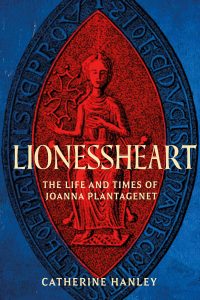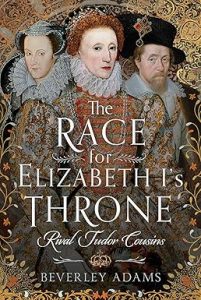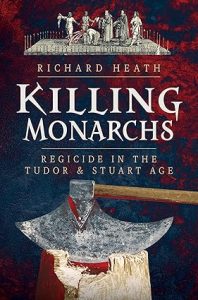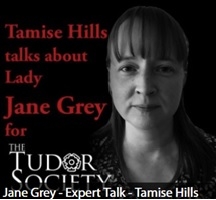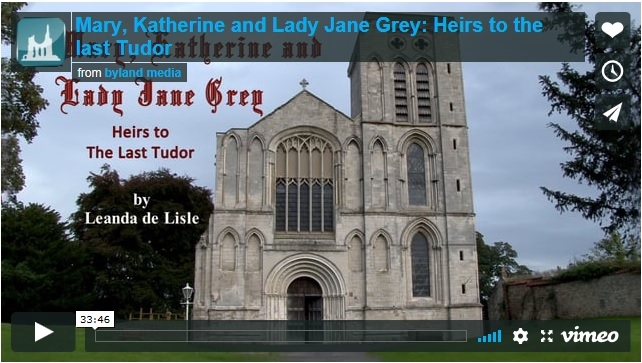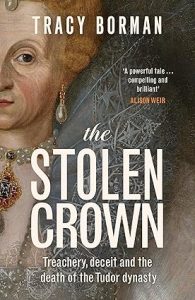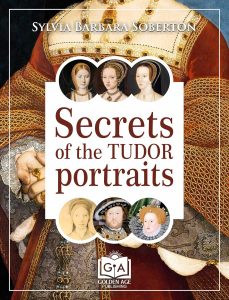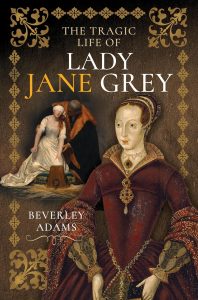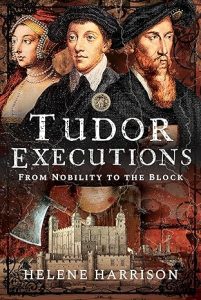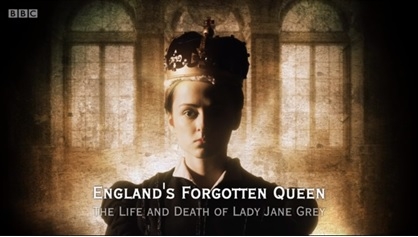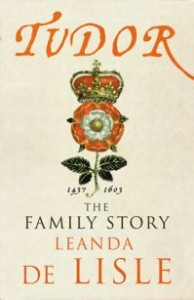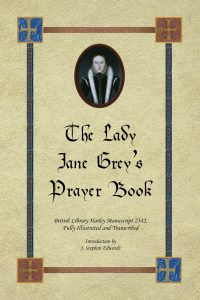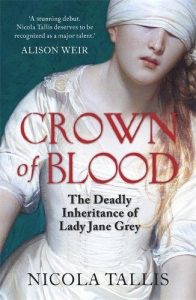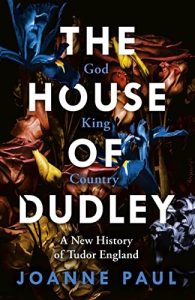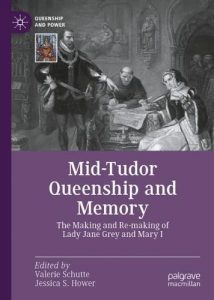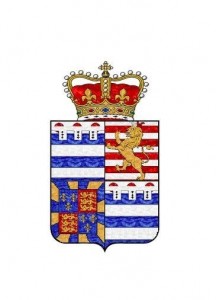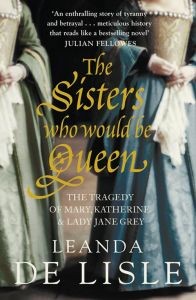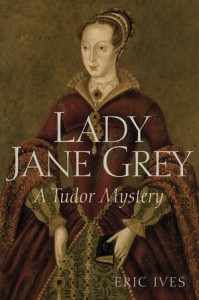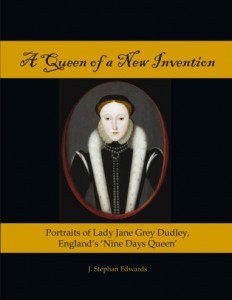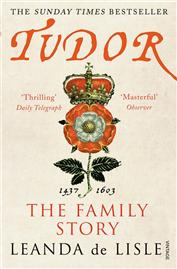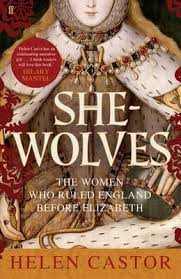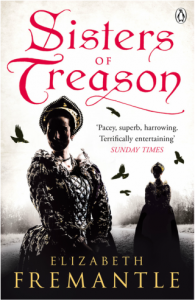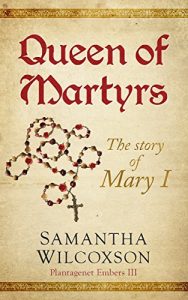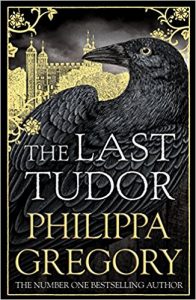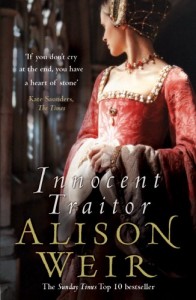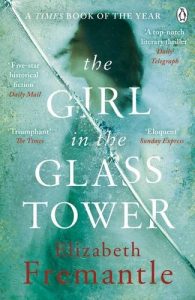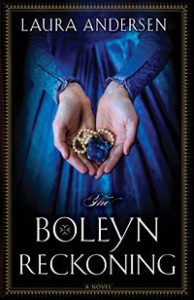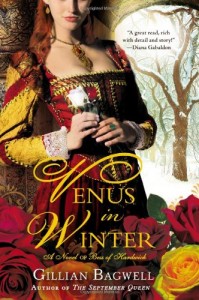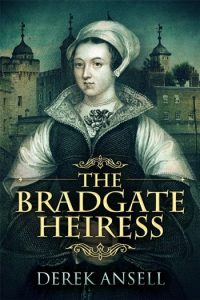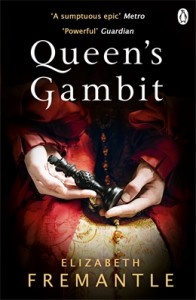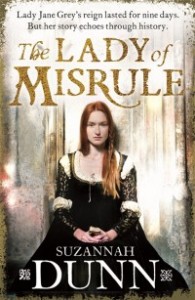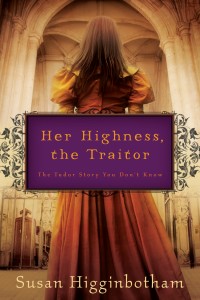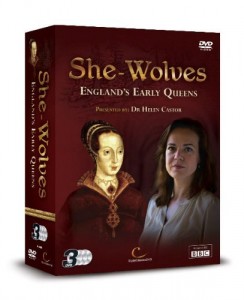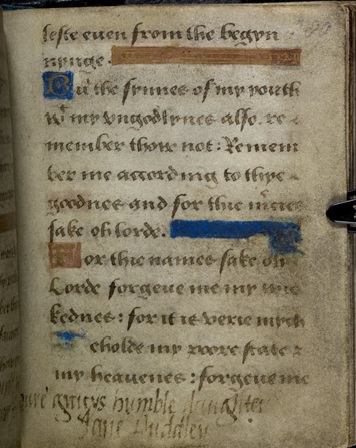Thank you to everyone who entered the competition. Leanda de Lisle has very kindly answered all the questions that were submitted.
Sarah B & Anne:
Who is your favourite personality from the Tudor period and why?
I am fickle in this regard. Henry VIII is endlessly fascinating (although not ultimately very likeable!). But then I will become very interested in the internal world and private life of less well-known figures like Queen Elizabeth’s godson, Sir John Harington. I very much enjoyed researching the life of Henry VIII’s niece Margaret Douglas for Tudor – an extraordinary and largely overlooked life in the Tudor canon. I also grew rather fond of Owen Tudor – he was a brave man, loved by those who knew him, a very romantic and again largely forgotten figure. He would make a great subject for a movie.
Nicola:
How do you think Henry VIII would have been if he hadn’t of had his accident at the joust in 1536? Would his reign have been any different if the accident had never occurred?
I don’t think it affected his personality as some have suggested. If, however, Anne had not miscarried her baby (as she says she did after learning of the accident), and the baby was the boy it was reported to have been, then Anne I am sure, would have kept her head…for that year at least!
Carolyn:
Why did the Princes in the Tower really disappear? Were they regarded as a major threat to Henry Tudor’s claim to the throne, even though Richard III had declared his brother Edward IV’s marriage to Elizabeth Woodville was invalid, and the two princes were illegitimate?
Henry VII had the claim of illegitimacy quashed so that his wife and their children would not carry that taint. But even during the reign of Richard III there were many who did not accept the Princes were illegitimate. Loyalty to the Princes was a threat to Richard and Henry – and remained so even when they were dead. For why they ‘disappeared’ you should see the October edition of BBC History magazine (out mid September), because it is not a short or easy thing to explain. I also go into it in my book.
Lauren:
What made you decided to write a book on the family story of one of the most notorious royal families in England?
I had already written two books on Tudor dynastic issues, and felt I was now ready to tackle the full family history. I was keen to start early – before the Wars of the Roses – because I felt that the fifteenth century story is as amazing as the more famous reigns of Henry VIII and Elizabeth I, and helps us understand these later reigns better. I also felt there were many family members during the later period whose stories are too often overlooked, and which readers will enjoy discovering.
Eliza:
What do you think happened in Anne Boleyn’s fall? Was it all Cromwell, who wanted her out of his way, or Henry ordered Cromwell to make Anne disappear and Thomas just obliged?
I think it was a perfect storm of ill will that came together against Anne at a moment when she was vulnerable. Henry wanted to be rid of her, but didn’t know how to go about it without it seeming the Pope had been right to forbid his divorce from Katherine of Aragon. Cromwell saw this, wanted her gone, and showed Henry how it could be done.
Rebecca:
With all the negativity towards Anne Boleyn, Do you think she did what she was tried for, or was it all a big mistake by people just wanting her out of the way? Anne is my favourite of all Henry’s wives and I look forward to hearing your honest opinion….
I believe Anne was innocent of adultery. She was not a stupid woman and playing around behind Henry’s back would have been very stupid. She also went to her death saying she was innocent of adultery, and in a religious age I cannot believe she would not have confessed such a mortal sin if she had been guilty of it.
Denise:
Which previously overlooked person actually played a major role in changing history and how?
Henry VIII’s niece Margaret Douglas: Her role in strengthening the Stuart claim to the Tudor throne has been greatly overlooked. She was hugely important is arranging the marriage of Mary, Queen of Scots to her English born son, Henry, Lord Darnley, and although the marriage was a disaster for Mary personally, James’s paternity made him a) a Stuart king and not, say, a French one, and b) made him an acceptable heir to Elizabeth in England, despite his foreign birth. Also important and not much written about was her mother Margaret Tudor, and her grandmother Margaret Beaufort.
Aimee:
What made you become interested in the Tudor period?
Ooooh, gosh I can’t remember: as a child I loved all the old Tudor movies such as Anne of a Thousand Days and A Man for All Seasons, as well as the drama of the Armada. I think it is often fiction that first triggers a child’s interest in history.
Rhiannon:
If Prince Arthur had lived what impact do you think that would have had on the country today?
I think it is quite possible the British isles would be Catholic, we would have some medieval wonderful art and music that was destroyed at the reformation, and later art and music that was never commissioned, we might have avoided the English civil war, our relations with Ireland would be that much less bitter….but whatever horrors we avoided, others may have befallen us.
Kristie:
What influence (if any) do you feel that Margaret Beaufort had on Henry?
Interesting question – they were parted when Henry was just five years old, and saw very little of each other until he was twenty-eight. But he knew she was utterly loyal to him, and he was not a man who trusted many people. As king he looked to her for advice on a kingdom he barely knew, and I think her influence on him as king was considerable – although one has to be careful not to exaggerate it.
Natalie:
Why do you think Elizabeth did not want Katherine Grey’s son, Edward, to succeed her?
I think she resented the Seymour family of Katherine’s husband after the danger she was put in by Thomas Seymour, who wished to marry her, and her treatment at the hands of his brother the Protector Somerset. These memories were revived and inflated after Katherine’s secret marriage to Somerset’s heir, Hertford, a marriage that was extremely dangerous to Elizabeth. Katherine’s son represented a possible Protestant, male, alternative to Elizabeth, and if it hadn’t been for the fiasco of Jane Grey’s nine day reign, Elizabeth might well have been replaced by Katherine and Hertford: Protestants in particular wanted a king. Elizabeth never forgot or forgave Katherine and Hertford for that. Also, Elizabeth was a dynastic legitimist, and King James was her closest heir in blood.
Andria:
Bearing in mind Henry VIII dark reputation regarding his treatment of his wives, why, during a reign of fear, did nobles believe that their daughters, should they marry Henry, would not meet a grisly end?
Hope springs eternal in the human breast! If their daughters had sons everyone’s lives would be transformed…
Cathy and Valerie:
Do you think Hilary Mantel’s softer, family man interpretation of Thomas Cromwell has any bearing in reality, or was he just as cunning and ruthless as most historians tend to interpret him as?/ What are your thoughts on how Thomas Cromwell has been treated by history?
I’m afraid I think Thomas Cromwell’s portrait with its cold and vicious eyes says it all. This was a man who bullied juries into condemning Carthusian monks, widely regarded as the holiest men in England, to grisly deaths. He cared little for the law and less for the lives of anyone who didn’t share his world-view. I’m sorry to say some of my ancestors worked for him!
Gail:
Elizabeth was close with her cousins from her mother’s side of the family. Is there any evidence that Elizabeth ever discussed their family history with her Boleyn cousins?
Not that I am aware of. But Elizabeth went to great lengths to honour her mother’s memory without actually mentioning her name in public. She wore a ring with her mother’s face in it, and promoting her Boleyn relations was amongst her first actions as Queen.
Kate:
Given the amount of books already written about the Tudors, did you feel a pressure to deliver something completely different as to what had already been published?
I didn’t feel that pressure to be honest. Publishers are quite happy with unoriginality and I was even told by a great editor (not mine) that I should remember people like clichés! That being said I would have died of boredom if I were just going to re-write other people’s research and ideas. I want to explore, I want to think for myself. And that is why I began the book long before Bosworth. I thought….oooh, not much about that in other Tudor dynastic histories, I wonder what happened then?
Amanda:
Over the last couple of years, Tudor history has been given a new life with more interest invested in it. What do you feel is the most significant idea put forward so far and do you feel that there are any areas which have been grossly misinterpreted or neglected?
Gosh that is a hard question. Eamon Duffy made us look at the Reformation again, exploding the old view that it was popular, but that was over twenty years ago – Peter Marshall is writing a new book on the Reformation for Yale, and that will be an important book. Peter Lake has done some every interesting work on the Elizabeth period, and on the growing importance of political and religious debate outside the elite, and I think that is something we will hear a lot more about. John Guy is currently writing a book on Elizabeth’s last decade, which will be very interesting I have no doubt. Judith Richard’s essays on what Elizabeth learned from Mary inspired some of my own book, and anything written by Tom Freeman is a gem. I learned new things from him about Katherine Parr’s quarrel with Henry VIII in 1546. Areas misinterpreted or neglected? I think more work remains to be done by academics on the life and afterlife of Jane Grey (I think John Guy will be looking at that too) and I feel that Margaret Douglas deserves a new biography.
Margherita:
If Katherine Grey had been allowed to live with her husband Hereford how would that have affected Elizabeth’s sense of security over her throne?
Katherine already had two sons – she could have had a dozen! Poor Elizabeth would have felt sick with horror at the birth of every one of them!
If Lady Jane Grey had not been forced into marriage and the thrown how do you think her life would have unfurled in England of the 16th Century?
I am not convinced Jane was forced to marry. She was wed at the usual age for a nobleman’s daughter and it was usual for such marriages to be arranged. The evidence is that she respected Guildford at the very least – see the guest article I did for this site. I doubt she would have chosen to be Queen. She accepted what she believed was her duty, and fought to keep her throne. If things had been different, if all her choices had been entirely her own, I expect she would have married a passionate Protestant from the elite (as Guildford was), and been the passionate advocate of Protestantism she died as. The difference is she might have lived a lot longer, and maybe had children.
Helene:
Which Tudor personality do you think is the most underrated and why?
Margaret Douglas who has not had a strong biography written of her – possibly because the lack of romantic portraits of her as a girl has made her unappealing as a subject to publishers.
Martha:
Henry VIII was believed to idolise King Henry V who, though a forerunner, was not his direct ancestor. Given that the Tudor dynasty sprang instead from the middle Lancastrian’s widow Catherine of Valois, how frustrating do you think Henry found being so close to and yet so obviously far from the hero of Agincourt, and how far do you think that his descent from Charles VI of France through Catherine was in his mind when he ‘reopened’ the Hundred Years War in 1513, despite the fact that emphasising this claim may have in turn emphasised the dubious nature of his conventional claim to the French throne via Margaret Beaufort, and indeed the English crown itself?
Henry VIII was certainly frustrated by his lack of success in France. He wanted to be crowned in Paris as Henry VI was. But he saw himself as the heir of York as well as Lancaster and it is significant that he chose in the end to be buried not with his father and grandmother, Margaret Beaufort, but with his Lancastrian half uncle Henry VI, and his York grandfather Edward IV. He was the living embodiment of the union rose. I think his co-descent from Edward III was more in his mind when he went to war in France than that of Catherine of Valois who he never even bothered to bury (she had been dug up when Henry VII re-built the lady Chapel).
Kerry:
Do you think/feel that Queen Elizabeth I ever regretted putting her paternal cousins, the Ladies Catherine and Mary Grey under house arrest? Lady Catherine was imprisoned for 7 years until her death at age 28. Was her death the reason why she took Lady Mary out of house arrest and made her one of her Ladies-in-Waiting?
No. Lady Mary remained under house arrest for many years after Katherine’s death. She was only released after the death of her husband Thomas Keyes. I write a lot about Mary in my book The Sisters Who Would be Queen.
Drew:
Which historic person from the Tudor period would be most at home in the 21st Century ?
Elizabeth I. She could handle anything.
Vonni:
If Jane Seymour had not died after giving birth to a son, do you think that the marriage would have lasted and been his final marriage?
If she had outlived him and not died in childbirth later, or of anything else, then yes, I think so.
Sarah L:
I would like to know what your opinion of Jane Seymour is? History has painted her as a fairly bland character when compared to Anne Boleyn, someone who was coached by others in order to ensure she was appealing to the King. Do you think she was the meek mild woman she has been portrayed as or do you think she was every bit as ambitious as Anne was?
I think she was as ambitious as Anne – perhaps more so. Anne did not want to have an affair with Henry, but she was trapped into it – no one else dared marry her. Jane Seymour, on the other hand, set out to seduce Henry into a marriage, which would mean Anne’s death. She married Henry when Anne’s body was barely cold. Her brothers were extremely ambitious highly intelligent men. I suspect she was too, and knew to hide it. Ice isn’t bland, it’s cold and it burns. That was Jane Seymour.


